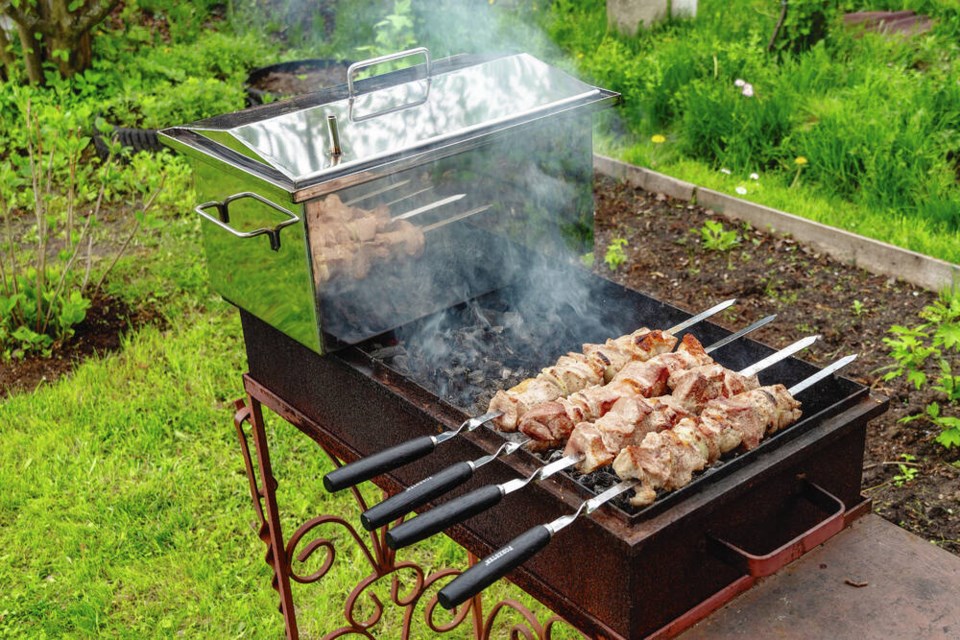It’s early summer, so let’s talk barbecuing! And let’s talk fast before our now-annual “Worst Fire Season Ever!” season really gets going and ruins everybody’s chances of making the backyard deliciously beer-friendly.
This is important because the vast majority of scientists not currently working for, or seeking opportunity with, oil and gas companies agree that worsening drought and wildfires are a consequence of man-made climate change from burning fossil fuels.
On the other hand, they also agree that barbecued cheeseburgers and cold beer taste pretty damn good.
Charles Darwin in particular enjoyed a good chinwag around the barbecue. The father of the theory of evolution considered language and fire to be the two greatest achievements of humanity.
From photos of the man, I think it is safe to say he considered the comb and all toothed instruments for adjusting, cleaning or confining hair to be our least-important achievement.
My point is that gathering around a fire to eat and share stories is as important a ritual today as it was when the earliest humans did it, which, if I correctly recall the early chapters of Genesis, included Adam, Eve, Little Joe and Hoss camping at the Ponderosa.
As you know, Canada is one of the world’s great barbecue nations. Our summers are short, so we pack them with as much exposure to harmful ultraviolet radiation and hilariously toxic levels of alcohol as possible.
We passionately roast the more tasty animals we have come across, never once complaining about how Spicy Mango Beef Jalapeño BBQ Sauce has the exact same ingredients and taste as Cherry Chicken Chipotle BBQ Glaze.
We Canadians are a passionate people, just very reserved, and normally quiet about our passions.
Except, obviously, on university campuses when the Israel-Palestine situation is way more exciting than studying for finals or getting a summer job.
Or when you don’t understand jokes and want to let everybody know it by writing letters to the editor.
Or — returning to the topic at hand, which I almost forgot, thinking about cheeseburgers — when someone from one of the banjo-playing American states says the correct term for cooking meat outside is “grilling.”
Grilling! As a passionate Canadian I say THIS WILL NOT STAND, eh? Grilling is what we use to squash bugs on the Coquihalla highway. Grilling is what police detectives do to criminal gang members and other people from Nanaimo.
The correct term for cooking meat outside is barbecue, or BBQ, if you are in a hurry because you have to write a letter to the editor.
Barbecue comes to us from the Spanish word “barbacoa,” which was first used in print by the Spanish explorer Gonzalo Fernández De Oviedo y Valdés in 1526.
After the Spaniards landed in the Americas in 1492, but before they really hit their stride with all the murder and enslavement, they observed the Taíno people, who inhabited Hispaniola, Jamaica and Cuba, slow-cooking meat on sticks.
The conquerors from Spain embraced the barbacoa method, which also turned out to be a great way to “combat religious heresy” back home, by which they of course meant, “consolidate power in the monarchy of the newly unified Spanish kingdom.”
In any case, this summer you’re not just flipping burgers! You’re carrying on the good work of the Inquisición Española, or Spanish Inquisition, a hardcore judicial institution that lasted from 1478 to 1834. Isn’t history fun?
The modern barbecue was invented in 1952 by George Stephen, a welder at Weber Brothers Metal Works in Illinois. He cut a metal buoy in half to make a kind of domed grill with legs, fuelled by whatever you liked because: the 1950s in Illinois!
The barbecue was significantly improved upon in 1992 by two-time world heavyweight boxing champion George Foreman. Technically he did not imagine, design or construct the new barbecue. His significant improvement was more along the lines of saying: “I’m two-time world heavyweight boxing champion George Foreman” into a television camera.
Today there are just a few things to know in order to get the most out of your backyard barbecue experience:
Keep your grill clean, and well-maintained
Clean your grill lightly before each use, and heavily clean it several times during barbecue season. Hahaha, I’m kidding! You and I are going to use a nearly bristleless old BBQ tool our dads gave us in the late 1990s, knock the worst of the food debris into the dark and mysterious grill bottom, and call it good enough.
Carefully choose the food to barbecue
Today there is a wide variety of foods suitable for the barbecue: meat.
Some people at my house, by which I mean wife people at my house, have suggested grilled vegetables and fruit would make an excellent side to a barbecue meal.
The notions that get into her pretty little head! The proper side dish to any barbecue meal is grill rust, which is full of iron, an important element to both heavy industry and our oxygen-carrying red blood cells.
Pick your dangerous hydrocarbon
Meat requires heat, and we have many choices for what to burn. Charcoal grills get hotter and give meat a natural smoky flavor and cancer. Barbecues that burn gas (propane, natural gas, Uncle Bart when his wife is not around) both attract spiders and provide a delicate hint of rotten eggs to the backyard.
Wood-pellet grills provide precise temperature control and a wood-fired flavour, and make you look like a Scandinavian weirdo.
I am not one to criticize another man’s religion, so however and whatever you choose to burn this barbecue season, go for it!
It may be the last one we get.



